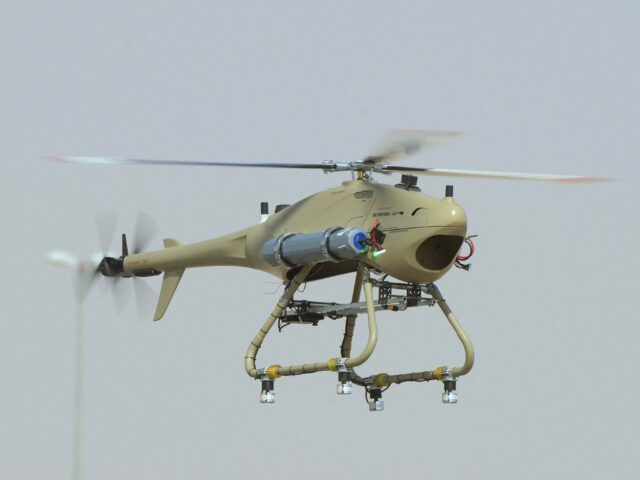Yemen is one of the poorest countries in the world. Yet it threatens the entire globe.
That is because the Shia minority known as the Houthis, comprising some 35% of the population of 32 million, has decided to fire missiles at ships passing through the Bab-el-Mandeb, the strait at the southern end of the Red Sea.
The Houthis claim they are attacking ships that are connected to Israel, but the links in most cases are tenuous at best. Regardless, the attacks have threatened the 10% of global oil that passes through.
Several shipping companies have announced that they will not send cargo through the Bab-el-Mandeb and the Suez Canal to the north. And the effects are rippling outward: the government of Malaysia, a Muslim country, declared this week that it will stop allowing Israeli ships to dock at its ports.
If other anti-Israel countries — say, perhaps, South Africa, which controls the key Cape of Good Hope — follow then Israel could face a global embargo in addition to what is, effectively, a blockade of its southern port.
The Houthis — again, in a country so primitive that it does not even have a railway — have also managed to launch missiles and drones against Israel’s southern city of Eilat. These are advanced enough to enter space.
Thus far, Israeli and American defense systems have largely intercepted these missiles and drones. But advanced drone technologies — such as China’s Blowfish drone — are already being sought by rogue regimes, such as the Taliban in Afghanistan.
We could soon see a Houthi and the Blowfish.

A Blowfish A3 Combat Swarm System by Ziyan UAS hovers during a live demonstration at the UMEX Exhibition showcasing drones, robotics, and unmanned sytems at the Abu Dhabi National Exhibition Centre in the gulf emirate on February 23, 2022. (Photo by AFP) (Photo by -/AFP via Getty Images)
I’d like you, dear reader, to appreciate how much work it took to set up that pun, with apologies to one of the great southern rock bands of the 1990s.
But the threat is serious — and the world’s response, thus far, is not.
The U.S. has formed a coalition of ten nations, in what Secretary of Defense Lloyd Austin clumsily calls Operation Prosperity Guardian, to deter Houthi attacks on shipping in the Red Sea, with the “United Kingdom, Bahrain, Canada, France, Italy, Netherlands, Norway, Seychelles and Spain” participating.
A few of these countries have respectable navies. A few do not.
The Seychelles, a tiny nation thousands of miles away in the Indian Ocean, has a coast guard, which has been deployed against Somali pirates. The Canadian navy might have a few icebreakers to spare, now that climate change is supposedly melting the polar ice cap.
Conspicuously absent from the coalition are Saudi Arabia — which was at war with the Houthis for years — and Egypt, which runs the Suez Canal. And Israel appears to be totally excluded.
Operation Prosperity Guardian appears to be a defensive alliance. That is, the international naval forces are going to sit in the Red Sea, look for pirates, and wait for drones and missiles to shoot down.
What does not appear to be on the agenda is any plan to go after the Houthis in Yemen — their missile batteries, their harbor facilities, their command headquarters. These are probably not too hard to find: the Houthis aren’t shy about gathering all of their hardware in one place for the purpose of propaganda videos.
The Yemeni Houthis released this video to threaten the US
Seriously, do yourself a favor, turn up the volume and watch this masterpiece for a good laugh
pic.twitter.com/rE2EAPFSqU— Dr. Eli David (@DrEliDavid) December 19, 2023
The coalition is an excuse for inaction. The U.S., with a naval base across the strait, could do enough damage to the Houthis to deter any more attacks. So could Israel, which the Houthis attacked without provocation; Yemen is almost 1400 miles from Israel.
But Biden is afraid to provoke a wider war with Iran, with a tough re-election campaign looming. Oddly, Iran is not afraid to widen the war, which is why it has prodded five armies into attacking Israel, and why its proxies are threatening the world.
The crisis with the Houthis was foreseeable, and foreseen; this author predicted it a decade ago. Trump stood up to them, and to Iran. Biden reversed that policy within days of taking office. We see the result: a failure, like the rest of his foreign policy.
Joel B. Pollak is Senior Editor-at-Large at Breitbart News and the host of Breitbart News Sunday on Sirius XM Patriot on Sunday evenings from 7 p.m. to 10 p.m. ET (4 p.m. to 7 p.m. PT). He is the author of the new biography, Rhoda: ‘Comrade Kadalie, You Are Out of Order’. He is also the author of the recent e-book, Neither Free nor Fair: The 2020 U.S. Presidential Election. He is a winner of the 2018 Robert Novak Journalism Alumni Fellowship. Follow him on Twitter at @joelpollak.

COMMENTS
Please let us know if you're having issues with commenting.